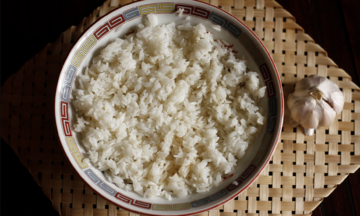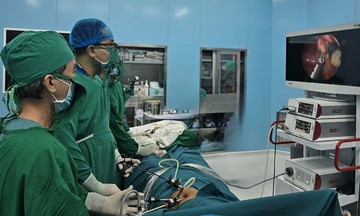On 6/9, representatives from the National Hospital of Tropical Diseases reported a case of a 60-year-old man with a history of hepatitis B who had not undergone regular health checkups. After seeing an online advertisement for male papaya flowers soaked in honey, he began consuming the mixture daily for two years, believing it to be a panacea.
Experiencing fatigue and jaundice, the patient sought treatment at a local medical facility but found no relief. He then went to the National Hospital of Tropical Diseases. Doctors discovered he had cholestatic hepatitis, leading to jaundice, yellowing of the eyes, and a 1,000-fold increase in liver enzymes. They diagnosed acute liver failure due to a reactivation of the hepatitis B virus.
Doctors from the Hepatitis Department considered this an unfortunate case of improper use of traditional medicine.
 |
Traditional remedies like male papaya flowers soaked in honey require professional consultation and should not be self-administered. Photo: Commons.Wikimedia |
Male papaya flowers are a traditional remedy believed to help manage blood sugar levels in diabetic patients and improve digestive health. They contain papain, an enzyme that aids digestion and prevents constipation. People often soak these flowers in honey to address respiratory issues due to their anti-inflammatory properties and active compounds like gallic acid and phenol, known for their antibacterial and anti-inflammatory effects.
Additionally, the beta-carotene, gallic acid, and phenol in male papaya flowers have antioxidant properties, potentially limiting the growth of cancer cells, controlling blood pressure, and preventing cardiovascular diseases.
However, caution is advised when using male papaya flowers due to potential side effects, especially for pregnant women and children. Individuals with a cold body constitution, frequent stomach chills, diarrhea, or a history of pollen allergies should avoid them to prevent health risks. Excessive consumption can cause stomach aches, nausea, and diarrhea.
Doctors believe that if the patient's hepatitis B had been detected and managed earlier, he could have regained his health. His mistake was not seeking medical attention and self-medicating with a traditional remedy for an extended period while his body was weakened. This led to the dramatic increase in liver enzymes and severe cholestasis.
Doctors advise against using medications from unknown sources and recommend only using certified medications from reputable medical facilities. When using traditional remedies, consult a qualified professional for appropriate dosage guidance. Regular health checkups are crucial for early disease detection and timely treatment.
Thuy Quynh












